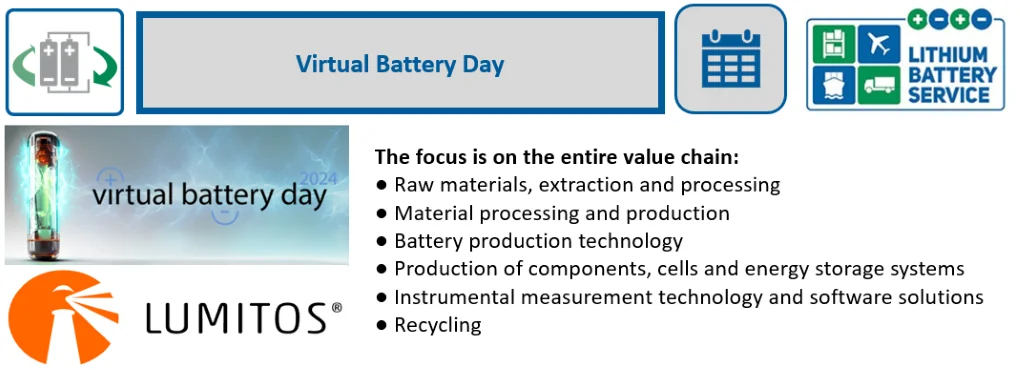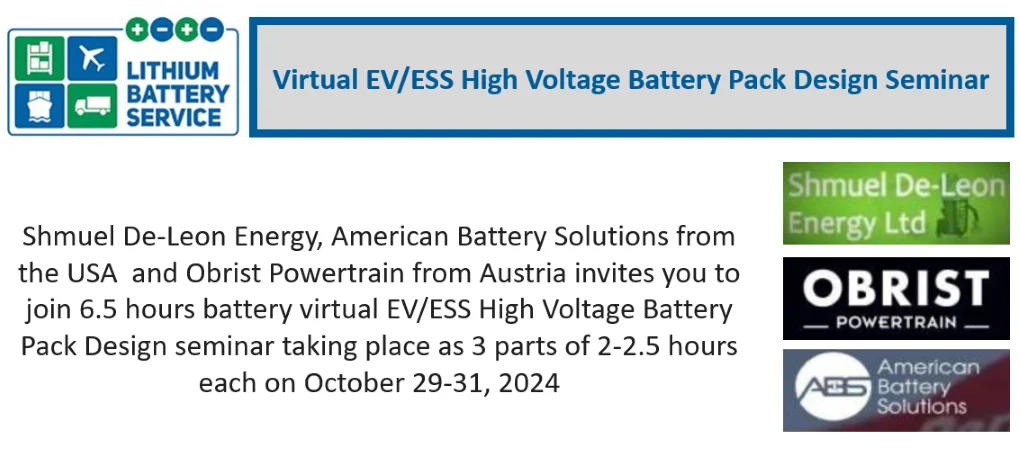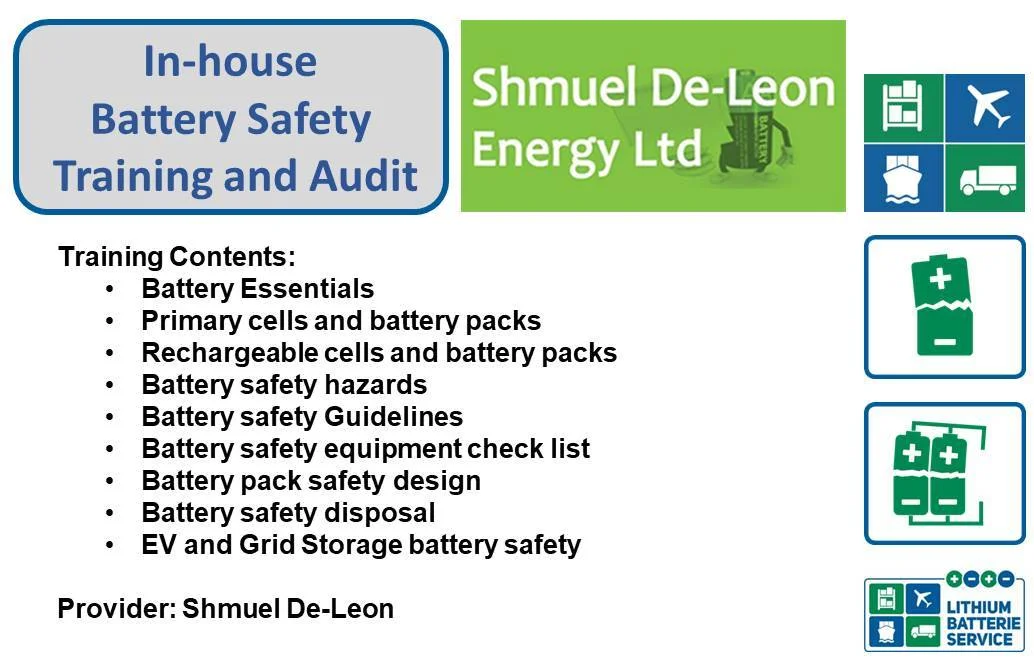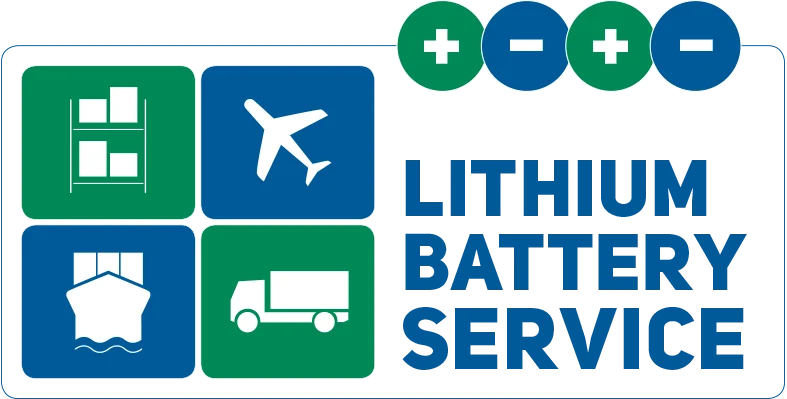What is necessary for shipping lithium metal button cells on circuit boards (UN 3091 PI 970 Section II) in air transport?
What is necessary for shipping lithium metal button cells on circuit boards (UN 3091 PI 970 Section II) in air transport?

The Question of the Day is:
If
a package with a circuit board containing a lithium metal button cell,
e.g. CR2354 (prepared according to UN3091 PI970, Section II), is to be
shipped by air, is it necessary that the persons packing and
documenting the shipment must be trained/instructed? Although there is
no marking + shipper's declaration required.
Our answer:
The
personnel needs to receive adequate instructions according to 1.6 IATA
DGR to ship such circuit boards. Such adequate instructions should
include at minimum the following:
• Classification of lithium batteries being shipped.
• Documentation of procedures applied to lithium batteries being shipped.
• Written work instructions or other documentation, including automated controls.
• Review and understanding of documented procedures as applicable to the job function.
• Instruction records including date(s) for all employees.
•
Refresher instructions provided at a minimum every two years or as the
documented instructions are revised or regulations are changed.
• Reverse logistics, including transport mode and applicable prohibitions.
Necessary logistics information:
Furthermore, the following must also be available for each of these button cells:
1. a confirmation of the manufacture in accordance with quality management program. And
2. the UN 38.3 test summary.
„Make available“:
The
text under 3.9.2.6.1 (g) in the IATA DGR means that for the logistic
process the UN 38.3 Test Summary does not need to be provided to the
forwarding agent, the shipping company or the operator.
Yet
for you as a company you need to have the UN 38.3 Test Summary for each
button cell aligned in your system electronically to the article and
the respective confirmation on the manufacture according to QM program
also (see 3.9.2.6.1 (e)). When you don´t have the confirmation of
manufacture according to QM program or no UN 38.3 test summary, the
button cell need to be considered as „damaged/defective“ and with this
the article needs to be moved to the quarantine place outside the normal
stowage respective production area. Stowage of the goods in the normal
stowage and production area is only allowed with QM program and UN 38.3
test (in form of the UN 38.3 test summary). In case of fire the
insurance would not pay compensation without the confirmations.
More blog posts
Latest newsblog posts

Promoting an open dialog on battery safety
October 18, 2024
Kim Enderlein
Dates
Finding solutions to the root causes of battery safety incidents and convening companies from all parts of the supply chain to address the issue of battery safety is paramount.

Virtual Battery Day
October 18, 2024
Kim Enderlein
Dates
After last year 's great success with around 1,000 participants, LUMITOS is once again organizing the virtual battery day on 13 November 2024.

How to Efficiently Recycle Li-ion Batteries
October 14, 2024
Kim Enderlein
Knowledge
A research team at Rice University is tackling the environmental issue of efficiently recycling Li-ion batteries amid their increasing use.

Training dates and free question time for license customers
October 14, 2024
Kim Enderlein
Newsletter
This is a good time of year to get up-to-date on changes, get into more details on certain topics and to take time to ask your questions and have them answered.

EV & ESS High Voltage Battery Pack Design Virtual Seminar
October 6, 2024
Kim Enderlein
Dates
Shmuel De-Leon Energy, American Battery Solutions from the USA and Obrist Powertrain from Austria invites you to join 6.5 hours battery virtual EV/ESS High Voltage Battery Pack Design seminar.

4th USA EV & ESS Battery Design and Production Hands-On Seminar
September 29, 2024
Kim Enderlein
Dates
EV battery market is growing dramatically as well as demand for EV battery design knowledge and best practice.

Validity UN38.3 test or UN 38.3 test summary
September 19, 2024
Kim Enderlein
Newsletter
There is no expiry date for UN 38.3 tests or UN 38.3 test summaries. If you are asked for documents that are a maximum of 2 years old or for a current document from 2024, there may be a number of reasons for this.

ADR Capitalization and/or lower case of the proper shipping name
September 18, 2024
Kim Enderlein
Newsletter
In today's newsletter, we would like to clarify a persistent piece of ‘fake news’. We keep hearing that the ADR designation should be capitalized. This is wrong.

IMDG Code: Shipping company MSC: Co-Loads – Requirements published
September 18, 2024
Kim Enderlein
Newsletter
On 2nd of September the shipping company MSC published their Co-Loads requirements, their requirements on what cargo may be loaded together with lithium cells and batteries in a sea container.

In-house Battery Safety Training
September 15, 2024
General
| Dates
We offer our customers and members of the battery industry an affordable in-house training and battery safety review at their facilities.


